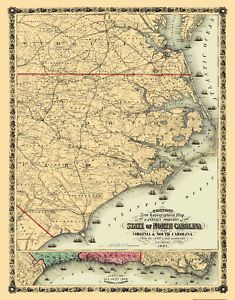 Larkin Stanhope Kenrick is a solider in the 34th North Carolina Infantry Regiment, hailing from Cleveland County in the eastern portion of the state. Prior to marching off to war, the small-time farmer lived near, and was a member of, Capernaum Baptist Church.
Larkin Stanhope Kenrick is a solider in the 34th North Carolina Infantry Regiment, hailing from Cleveland County in the eastern portion of the state. Prior to marching off to war, the small-time farmer lived near, and was a member of, Capernaum Baptist Church.
The Confederate soldier has already written to his family several times, commenting upon his gladness of finding Christian men in his army camp, and discussing his reasons for joining the army.
Today he writes another letter to his family, returning to the subject of why he joined the army. Leaving his wife and children had been difficult, he notes, but he did so out of patriotism. Specifically, because of duty to country and in defense of liberty.
Themes of honor, duty and liberty are commonly-stated reasons for fighting in the Confederate Army. Many men — including, apparently, Kenrick — who fight on behalf of the Confederacy are not slaveowners, and thus have no personal stake in defending African slavery, the cause of the war. Yet elite and powerful large slaveholders of the South, including prominent Southern Baptists, have convinced common white folk that African slavery is in their best interest, and worth fighting for. Kenrick, like his fellow common white men, knows that no matter his financial status, in the South his whiteness means liberty and superiority over the black race. Kenrick fights to preserve the liberty granted only to white men in the South.
Wounded at Fredericksburg in 1863, Kenrick is hospitalized and eventually dismissed from the army in 1864. He returns home and to a life of farming, but abruptly flees from North Carolina to Tennessee in late 1871, apparently avoiding arrest by United States authorities over his activities as a member of the Ku Klux Klan. Of the Klan, Kenrick had previously declared, “the Ku Klux Klan has done more good than anything else that ever happened.”
After leaving North Carolina, Kenrick stays in touch with his family for a year, but by 1875 entirely disappears, never to be heard from again. From prior correspondence, the former soldier indicated he would not return home to be arrested, and expressed interest in relocating to France or Texas. Where he went, and how his life ended, remains unknown.
Source: Larkin S. Kenrick papers, North Carolina State Archives (link)


